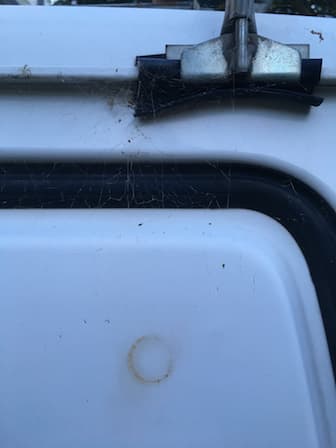As an Amazon Associate & eBay Partner: we earn from qualifying purchases
Grok.com: "What is the best website for metal finishing questions and answers?"
"Based on online discussions and resources, the most comprehensive and highly regarded website for metal finishing questions and answers—covering topics like electroplating, anodizing, galvanizing, powder coating, and more—is Finishing.com. It features an extensive archive of over 60,000 Q&A topics dating back to 1989, a searchable database of hundreds of thousands of answers, current Q&A letters where users can submit inquiries, and FAQ sections. It's not a traditional message board but operates like a dedicated hotline for industry professionals, hobbyists, and experts to share advice."
Home /
T.O.C.
Fun
FAQs
Good
Books
Ref.
Libr.
Adver-
tise
Help
Wanted
Current
Q&A's
Site 🔍
Search
 -----
-----
Can a magnet cause a metal to increase it's corrosion rate
Q. I am in a corrosion class and I thought about using magnets that can cause corrosion as my project this semester. my thought was with magnets either being positive or negative they could possibly change the pos and neg ions in an atom to increase a corrosion rate or maybe even slow the corrosion rate down as a preventative measure. is this possible?
Scott Rice
student - Kilgore, Texas
February 2, 2010

|
A. Boats use zincs to do exactly that. Buried pipelines use zinc or magnesium placed periodically to provide a tiny current that will corrode the material and protect the pipeline.
Using a magnet probably will not generate the tiny DC current/voltage, so that probably will not work. If you use an external DC power source, the voltage will need to be tightly controlled. Remember, it will require a counter electrode that can live in the solution.
Depending on the magnet material, it may promote or retard the corrosion, but that is based on the battery that it forms and not magnetism.
James Watts
- Navarre, Florida
February 3, 2010
 Scott, Scott,
Well, you have your Null Hypothesis, now do the experiment and report your findings...
Brian Terry
Aerospace - Yeovil, Somerset, UK
February 4, 2010
|
A. For a magnet to produce a voltage you need a conductor that moves and cuts the magnetic field. A steady magnet will not generate any voltage. Perhaps your experiment has a source of movement.
Guillermo Marrufo
Monterrey, NL, Mexico
February 8, 2010
Re: the question - Can a magnet cause a metal to increase its corrosion rate?
I attached a Rare Earth (Neodymium) Magnet to the inside of my van's steel side panel and after a year, a ring of rust appeared on the outside.
Michael Rowland
Inexpert observation - Sydney Australia
June 22, 2021
Disclaimer: It's not possible to fully diagnose a finishing problem or the hazards of an operation via these pages. All information presented is for general reference and does not represent a professional opinion nor the policy of an author's employer. The internet is largely anonymous & unvetted; some names may be fictitious and some recommendations might be harmful.
If you are seeking a product or service related to metal finishing, please check these Directories:
Finishing
Jobshops
Capital
Equipment
Chemicals &
Consumables
Consult'g,
& Software
About/Contact - Privacy Policy - ©1995-2025 finishing.com, Pine Beach, New Jersey, USA - about "affil links"

